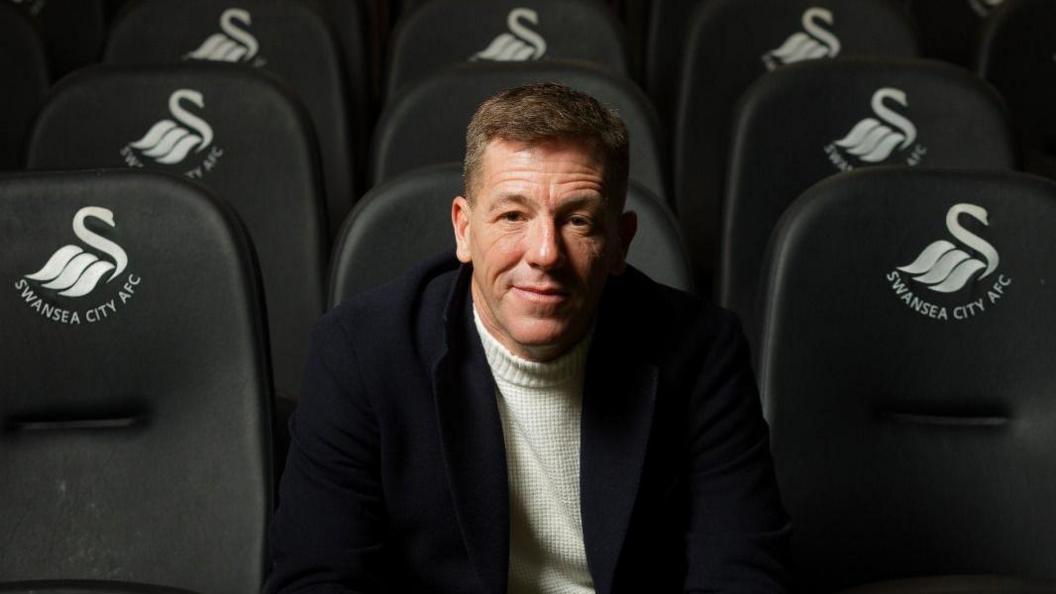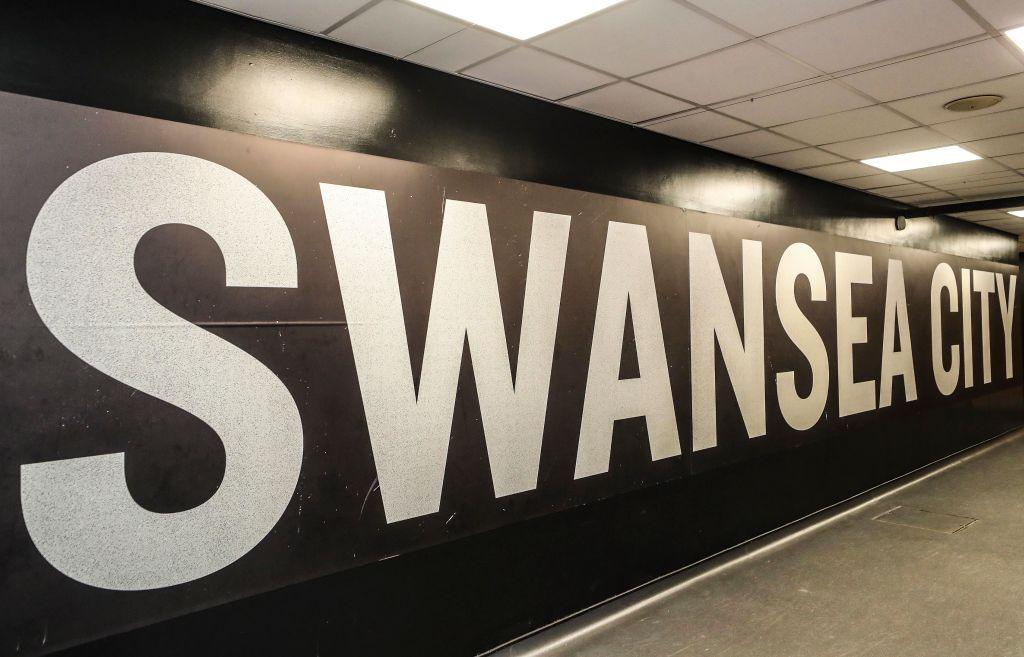Kaplan and Levien's era of turmoil at Swansea ends
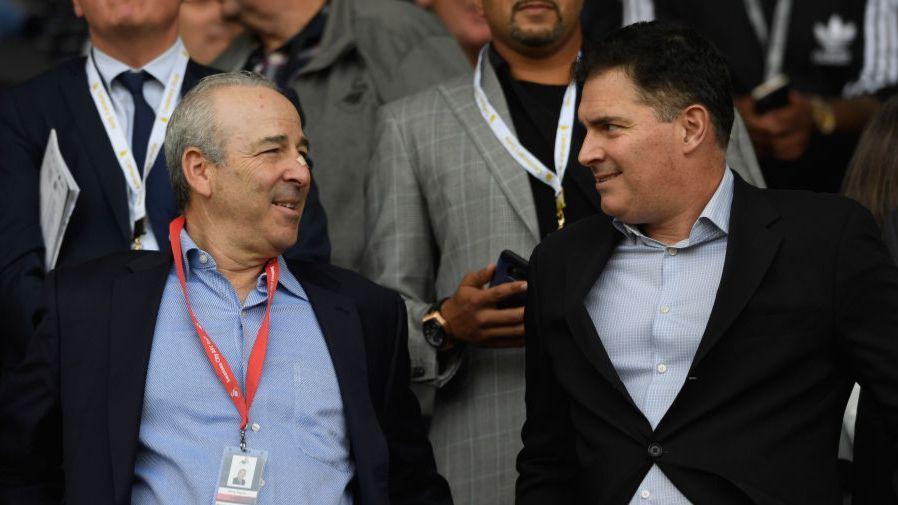
Steve Kaplan and Jason Levien bought a 68% stake in Swansea City in 2016
- Published
Jason Levien and Steve Kaplan have completed the sale of their majority stake in Swansea City to Andy Coleman, Brett Cravatt, Nigel Morris and Jason Cohen.
Cravatt, Morris and current chairman Coleman initially invested in the Championship side in 2023 but will now - along with businessman Cohen - assume full control at the Swansea.com Stadium.
It brings an end to Kaplan and Levien's more than eight-year tenure of disappointment and decline - which included relegation from the Premier League.
BBC Sport Wales examines the reasons behind Levien and Kaplan's decision to cut their losses after a turbulent reign.
Controversy from the outset
After taking control of Swansea in 2016 - when the club were in the Premier League - Kaplan and Levien vowed to "outwork our opponents on the pitch and in the boardroom".
They went on to declare: "We will be relentless in our determination to continually improve this club - and we have the financial resources to do so."
The mission statement would be regularly shared by Swansea supporters on social media sites during periods of struggle over the next eight years.
There were issues for Levien and Kaplan to contend with from the outset, with Swansea City Supporters' Trust - which held a 21.1% share in the club - threatening to take legal action after claiming it was excluded from some of the negotiations regarding their takeover.
It was an ugly situation that rumbled on for several years and, even when concluded in 2022, it was far from a happy ending.
The club, its former major shareholders and the Supporters' Trust "reached an agreement" over the dispute, although a significant portion of trust members were left angered amid suggestions they were not privy to the decision.
And then there was the actual football.
Francesco Guidolin was Swansea boss when Levien and Kaplan took charge.
The Italian steered the Swans to Premier League survival having replaced club icon Garry Monk midway through the 2015-16 season, but was sacked just seven games into the new owners' first campaign at the helm.
His replacement was the former USA coach Bob Bradley.
His brief spell in charge was miserable, with Swansea registering two wins, two draws and seven defeats before Bradley lost his job after just 85 days as head coach.
Swansea, who had been praised for the way they operated in the years prior to the arrival of Levien and Kaplan, were now facing serious challenges.
Many questioned whether they would have found themselves in such a predicament had the club stuck to their original plan of reappointing Brendan Rodgers - the man who guided Swansea into the Premier League in 2011 - as boss in the summer of 2016.
It should be said, however, the decision to back Guidolin, rather than hand the reins to Rodgers, was made a couple of months before Levien and Kaplan's takeover was completed, when then chairman Huw Jenkins still had the final say.
Along with the likes of Roberto Martinez and Michael Laudrup, Northern Irishman Rodgers was lauded for the possession-based style of play he implemented at Swansea.
But the club had drifted away from these principles as Levien and Kaplan fought fires from the beginning of their tenure.
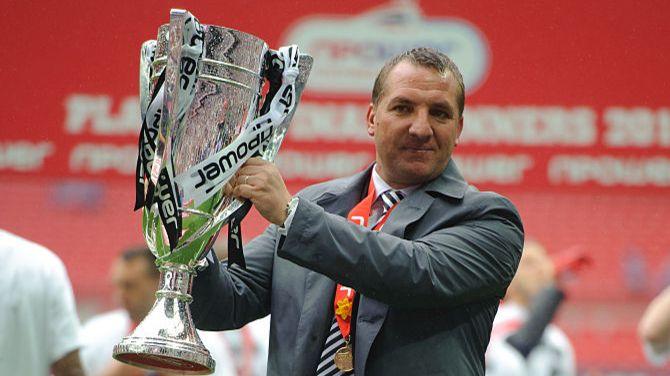
Brendan Rodgers guided Swansea City to a 4-2 win over Reading in the 2010-11 Championship play-off final
A crushing blow as the downward spiral started
Former Chelsea and Real Madrid assistant coach Paul Clement succeeded Bradley in January 2017, steering Swansea to survival thanks largely to a sequence in which they picked up 13 points from the final 15 on offer.
But Clement struggled in his first full season as boss and was sacked in December 2017 and replaced by Carlos Carvalhal.
The Portuguese was unable to prevent the club from being relegated to the Championship.
Numerous players - including Angel Rangel, Leon Britton, Lukasz Fabianski, Alfie Mawson, Sam Clucas and Federico Fernandez - left after the club's seven-year stay in the top flight ended.
Graham Potter was appointed as boss for the club's first second-tier campaign since 2010-11 after achieving three promotions during his time in charge of Swedish outfit Ostersunds.
The Englishman put huge faith in academy talents such as Oli McBurnie, Connor Roberts, Daniel James and Joe Rodon, who have all gone on to play top-flight and international football.
A playing identity was restored and the club was producing assets, although the vast drop in revenue following relegation ensured the purse strings were tight, and big-name departures became a regular occurrence.
Wilfried Bony, Tom Carroll and Jefferson Montero left on loan in January 2019, but winger James' proposed switch to Leeds United spectacularly collapsed at the 11th hour when Jenkins, who had stayed on as chairman after Levien and Kaplan's takeover, pulled the plug on a deal.
Jenkins resigned from his post just two days later after 17 years at the club, stating he had been "left with little or no option [but] to leave".
Not a single player joined the senior ranks that January, although Potter led the club to a respectable 10th-place finish after a strong end to his sole campaign in Swansea before joining Brighton.
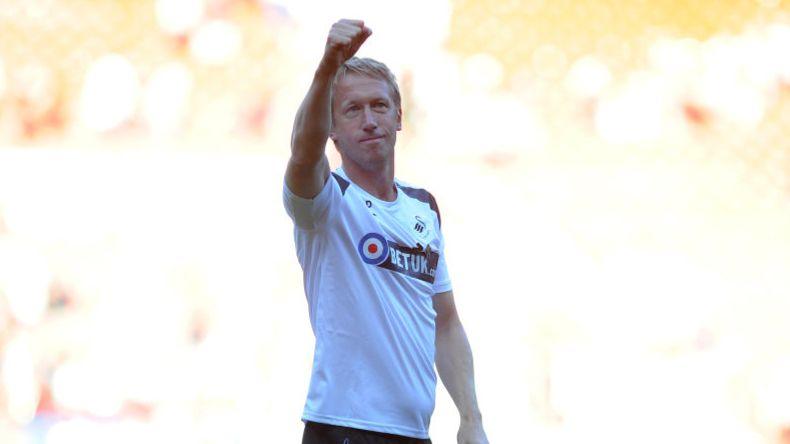
Graham Potter went on to manage Brighton and Chelsea after leaving Swansea City in 2019
Successive near misses and more exits
Just weeks before Potter's exit, Trevor Birch became club chairman and was handed "day-to-day control of all football and business matters".
He worked in tandem with new boss Steve Cooper, but in September 2021 left to become director of football operations at Tottenham as Welshman Cooper lost a chief ally.
As was the case with Potter, there was undoubtedly tension between those on the ground in Swansea and the US-based majority owners, with Cooper showing signs of frustration at a lack of investment in the playing squad at critical moments during his tenure.
Amid the Covid-19 pandemic, which in itself presented major challenges, and shortly after the 2021 January transfer window, Levien admitted there had been several mistakes made during his and Kaplan's ownership.
Levien conducted a rare media interview at a point where Swansea sat second in the Championship.
Just shy of four months later, they had lost the play-off final against Brentford which ensured a fourth successive Championship season loomed, while parachute payments had also expired.
Talented youngsters including Marc Guehi, Freddie Woodman, Conor Gallagher and Rhian Brewster made enormous impacts during loan spells with Swansea under Cooper, although their heavy involvement meant game-time for some of the club's own players was limited.
There was a feeling from the moment Swansea were beaten at Wembley that Cooper's reign was about to end, and he eventually departed by mutual consent during pre-season.
Another reset was needed. In came Russell Martin, just six days before the 2021-22 season started, after John Eustace performed a late U-turn having appeared destined to become Swansea head coach.
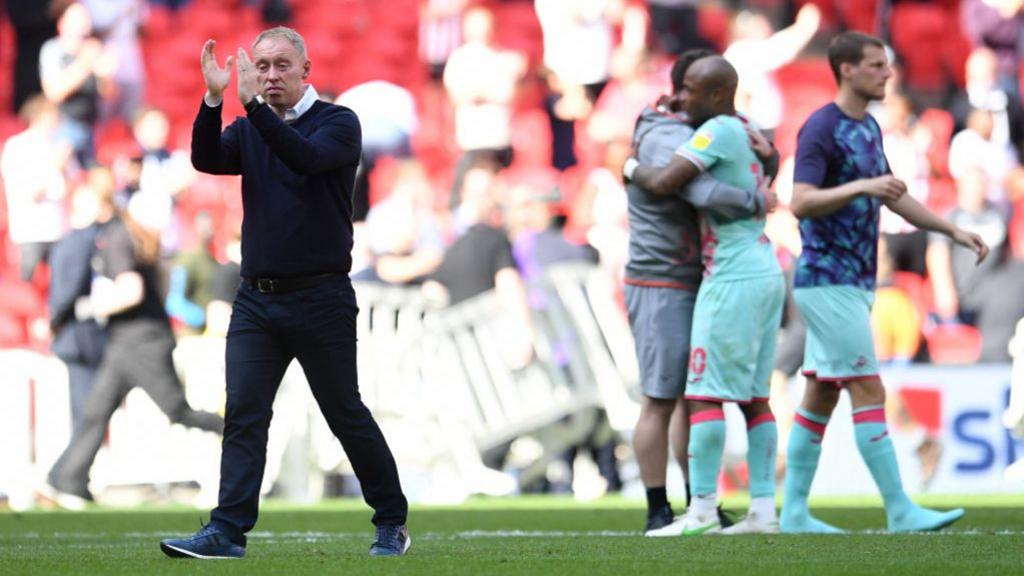
Steve Cooper guided Swansea to successive top-six finishes in the Championship
Martin instilled his methods - with an absolute commitment to a possession game - during an up-and-down debut campaign in which Swansea finished 15th having earned a first league double against rivals Cardiff City.
There was more promise shown during the 2022-23 season, as Swansea reached a peak of fourth position before a wretched run of just three wins in 21 league matches dramatically altered the club's trajectory.
That sequence overlapped another damaging January transfer window in which six players left and Swansea failed to make a signing, much to the dismay of Martin and his staff.
Levien and fellow board member Jake Silverstein conducted a surprise interview with the Supporters' Trust to apologise for the lack of additions made to the playing squad.
And when discussing his own input and that of the club's other shareholders into the club, Silverstein painted a bleak picture of Swansea's financial state.
He said: "That's what keeps the lights on, it's what keeps everyone employed."
In his first press conference after the January window closed, Martin was joined by all of his backroom team in a show of unity, at the training ground, amid dismay over calls being made on the other side of the Atlantic.
Martin referenced the "ambiguity" between the key decision-makers in the US and the recruitment team in Swansea when it came to the club's transfer dealings.
Opposing clubs became increasingly frustrated when it came to dealing with Swansea, with some relationships becoming strained.
After eventually halting their poor run on the pitch, Swansea ended the season in sublime style, going unbeaten in their final nine games - winning seven - to finish just three points outside the top six.
That meant a feeling, not for the first time since relegation, of what might have been had Swansea shown a little more ambition in the transfer market.
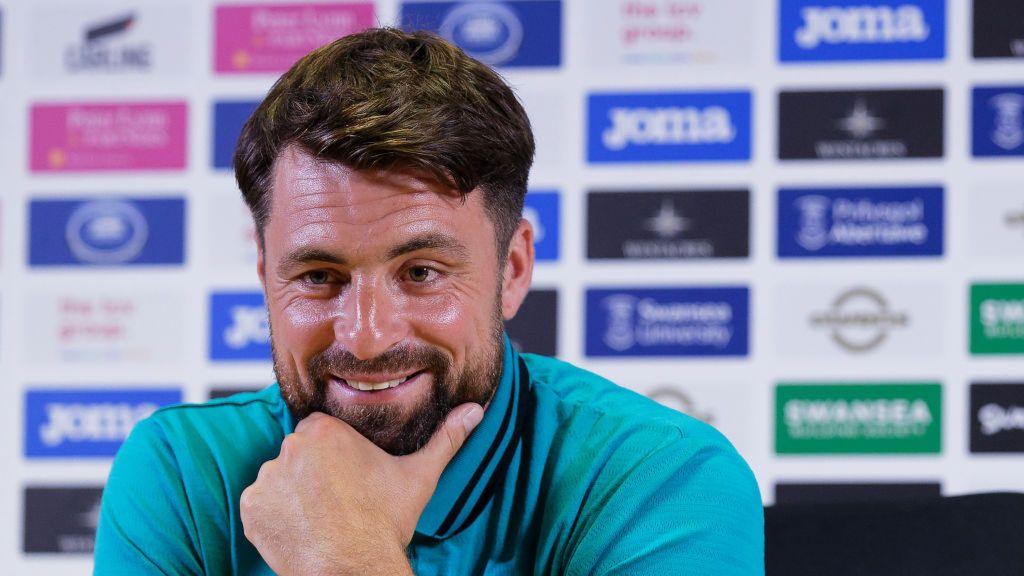
Russell Martin led Southampton back to the Premier League in his first season after leaving Swansea City
Coleman was appointed chairman after teaming up with Cravatt and Morris in investing in the club.
But more change was in the offing. The writing had seemingly been on the wall for Martin, who joined Southampton in the summer of 2023, while chief executive Julian Winter and chief of football operations Josh Marsh later moved on.
But following a fruitless winter window, Swansea's summer business set them back significantly, in football terms and financially.
Michael Duff and Paul Watson were appointed as head coach and sporting director respectively, but neither remain in those roles - the former being sacked within a matter of months following a run of just five wins in 19 league games.
Player recruitment was also heavily criticised, with few of the club's 13 additions impressing, which led to Watson coming under fire.
Following a more than solid stint in caretaker charge, Alan Sheehan made way for Luke Williams in January, with the former Notts County boss making steady progress as he nears the one-year mark in the role.
A new dawn beckons off the pitch too, and it is apparent Levien and Kaplan have lost a hefty sum since their now infamous bold statements were made in the aftermath of their takeover.
Particularly after relegation, they rarely attended Swansea matches and seemingly made little attempt to mend the broken bridges between themselves and supporters.
Throughout their time as Swansea's majority owners, there were questions among supporters about how interested they were in the club's fortunes.
Few, if any, fans will look back on the Levien and Kaplan era fondly.
The hope for the club's fans is that this week's takeover can help the club build towards a positive future - and perhaps a return to the top flight.
Related topics
- Published23 November 2024
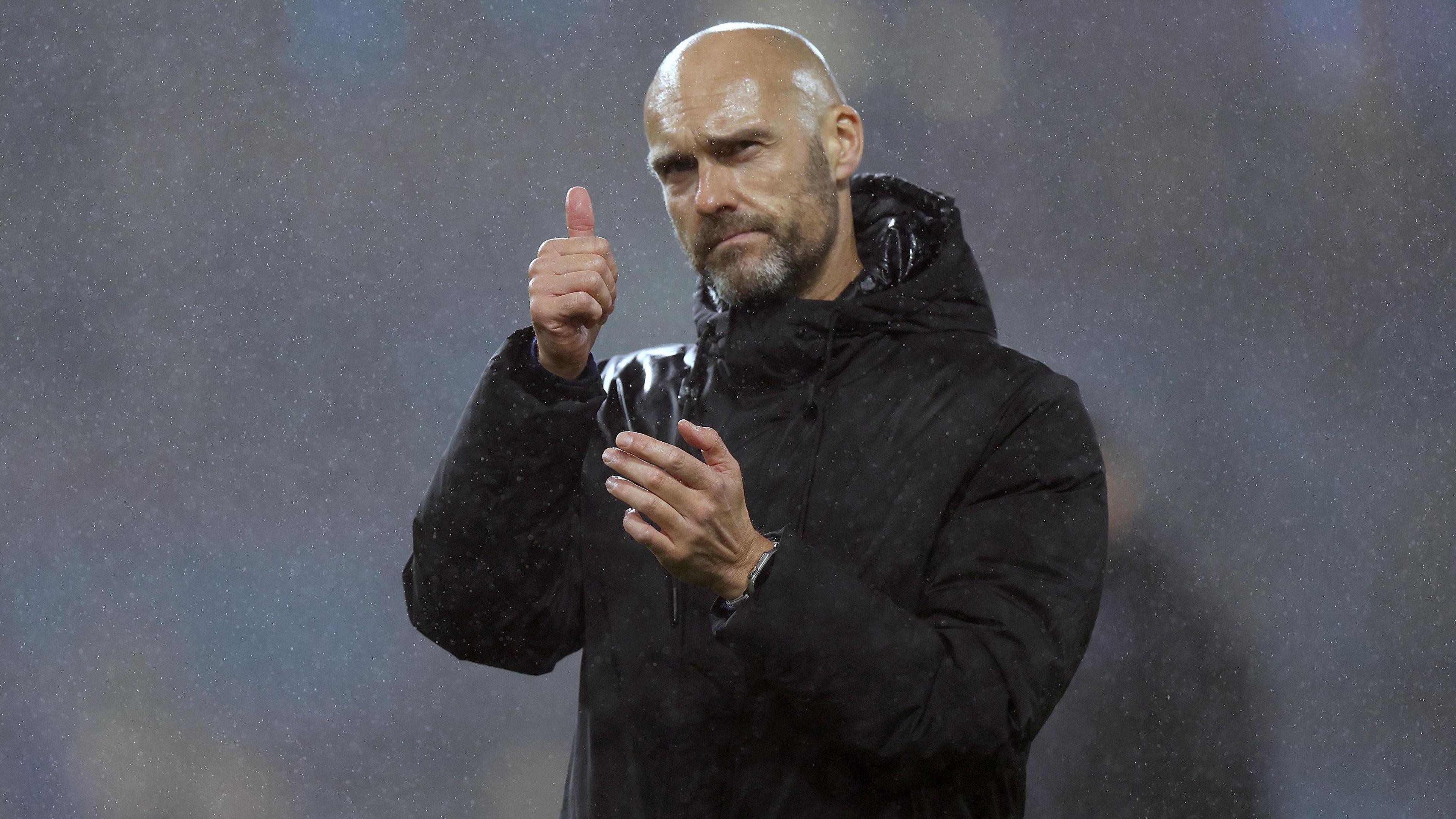
- Published23 November 2024
